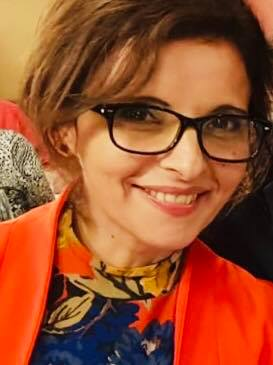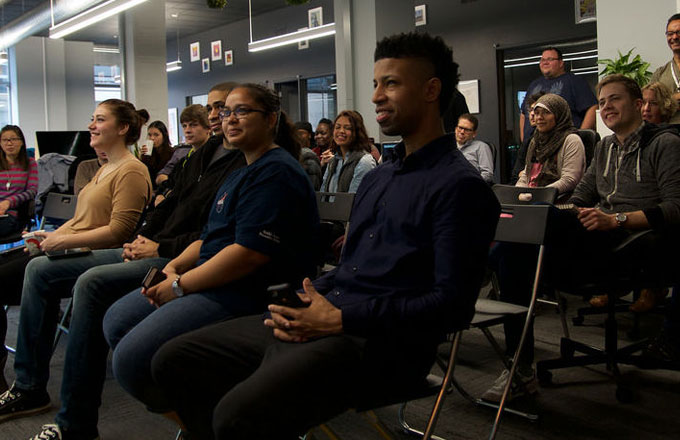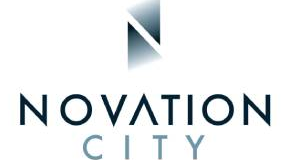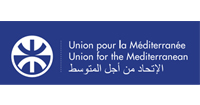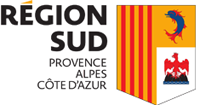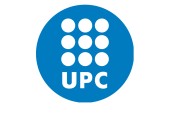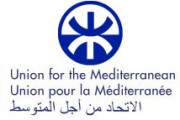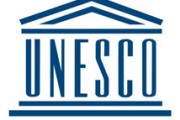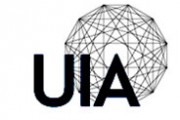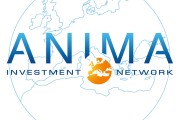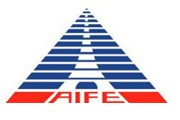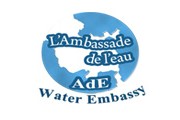[TARGET] Survey
Sondages - Gender equality Survey for RMEI H2020 TARGET programme
Gender equality Survey for RMEI H2020 TARGET programme
There are 20 questions in this survey
Part 1 Informations about your university
[]Name of your University / Institution *
Please write your answer(s) here:
- Name of your institution
- Your country
- Your city
[]General information: *
Please write your answer(s) here:
- Your name:
- Your position in the university / institution:
- Your email address:
- Your phone number:
[]Are you a female or a male? *
Please choose only one of the following:
- Female
- Male
Part 2 Gender related data of your institution
[]
If possible please provide some statistics regarding percentages of females at different levels and for different categories of human resources at your university:
IMPORTANT: If no data are available, please enter 9999 in place of the right number !
Please write your answer(s) here:
- Number of total persons in the top academic leadership team, president or rector (level 1):
- Number of women in the top academic leadership team:
- Number of total Vice-rectors (or equivalent e.g. level 2):
- Number of female Vice-rectors:
- % of women at academic management level 3 (deans):
- % of women at academic management level 4 (department heads):
[]
If possible please provide some statistics regarding percentages of females at different levels and for different categories of human resources at your university:
IMPORTANT: If no data are available, please enter 9999 in place of the right number !
*
Please write your answer(s) here:
- Number of total persons at the top administrative level (general scretaries or level 1):
- Number of women at the top administrative level (level 1):
- Number of total administrative directors (financial, educational, mobility and international relations, research, ... or level 2):
- Number of female directors (level 2) :
- % of female employees below level 2:
[]Scientific staff (as of today): *
Please write your answer(s) here:
- Number of full professors:
- % of female full professors:
- Number of associate professors:
- % of female associate professors:
- Number of assistant/lecturers professors:
- % of female assistant/lecturers professors:
- Number of other scientific staff:
- % of female other scientific staff:
[]Coordinators/responsables of Research &Innovation projects at your university for 2016/2017: *
Please write your answer(s) here:
- Number of project(s) or research project(s) responsables or coordinators:
- % of female responsables or coordinators:
[]Students (academic year 2016/2017): *
Please write your answer(s) here:
- Total number of students:
- % female students
- Number of bachelor graduates
- % of female bachelors graduates:
- Number of master graduates:
- % of female master graduates:
- Number of doctoral/PhD graduates:
- % of female doctoral/PhD graduates :
Part 3 Gender equality plan and activities at your institution
[]How is the topic " Gender Equality" embedded in the organization of your university? *
Please choose only one of the following:
 There is a special organizational unit/center/committee focusing on "Gender Equality"
There is a special organizational unit/center/committee focusing on "Gender Equality" “Gender Equality“ is dealt with among other issues in a unit with broader responsibilities
“Gender Equality“ is dealt with among other issues in a unit with broader responsibilities There is no special organizational unit/center/committee established in my university, but a single person is dealing with gender equality only
There is no special organizational unit/center/committee established in my university, but a single person is dealing with gender equality only There is no special organizational unit/center/committee established in my university, but a single person is dealing with gender equality among other responsibilities
There is no special organizational unit/center/committee established in my university, but a single person is dealing with gender equality among other responsibilities There is no special unit/center/committee or person responsible for this topic.
There is no special unit/center/committee or person responsible for this topic. Other:
Other:
Make a comment on your choice here:
[]Does your university have a "Gender Equality Plan" (or equivalent)? *
Please choose only one of the following:
 Yes, there is a Gender Equality Plan. Please provide us with the web link to your plan (or equivalent) in the comment box below.
Yes, there is a Gender Equality Plan. Please provide us with the web link to your plan (or equivalent) in the comment box below. No, there is no Gender Equality Plan
No, there is no Gender Equality Plan Gender is an integrated part of the university’s human resource strategic plan
Gender is an integrated part of the university’s human resource strategic plan There are plans to develop an institutional Gender Equality Plan/Strategy
There are plans to develop an institutional Gender Equality Plan/Strategy At the moment Gender Equality is not a priority topic of my university
At the moment Gender Equality is not a priority topic of my university
Make a comment on your choice here:
[]Does your organization assess the implementation of the Gender Equality Plan or Strategy? Please specify which measures are used for the assessments. *
Please choose only one of the following:
 Yes
Yes No
No
Make a comment on your choice here:
[]Which of the following activities/practicies were implemented at your university in 2016 and 2017? *
Please choose all that apply:
 Specific measures and/or programmes for attracting female students to engineering studies
Specific measures and/or programmes for attracting female students to engineering studies Specific recruitment and promotion policies for female researchers
Specific recruitment and promotion policies for female researchers Measures, including quotas, to ensure a balanced composition of females and males in your organisation's committees (e.g. involved in recruitment, appointment, career progression, or - if applicable - in evaluation of research programmes or projects)
Measures, including quotas, to ensure a balanced composition of females and males in your organisation's committees (e.g. involved in recruitment, appointment, career progression, or - if applicable - in evaluation of research programmes or projects) Flexible career trajectory (e.g. provisions to allow interruptions of career, returning schemes after career interruptions)
Flexible career trajectory (e.g. provisions to allow interruptions of career, returning schemes after career interruptions) Work-life-balance measures (e.g. parental leave, flexible working arrangements for researchers)
Work-life-balance measures (e.g. parental leave, flexible working arrangements for researchers) Development of gender competence at your university (e.g. specific leadership training, gender/diversity training for top or middle management, mentoring for female researchers)
Development of gender competence at your university (e.g. specific leadership training, gender/diversity training for top or middle management, mentoring for female researchers) Are there networks and groups for the development of gender competence for female researchers?
Are there networks and groups for the development of gender competence for female researchers? Are there best pratices regarding the development of gender equality within your organisation ?
Are there best pratices regarding the development of gender equality within your organisation ? Is there measures against sexual harassment?
Is there measures against sexual harassment? None
None Other:
Other:
[]Does your organisation face barriers when setting up activities/practices/measures in connection with gender issues? *
Please choose only one of the following:
 Yes
Yes No
No
[]If your organisation is facing barriers how important are the following barriers to setting up activities in connection with gender issues? Please rate accordingly *
Only answer this question if the following conditions are met:
Answer was 'Yes' at question '13 [q8]' (Does your organisation face barriers when setting up activities/practices/measures in connection with gender issues?)
Please choose all that apply:
 Barriers Important, somewhat
Barriers Important, somewhat Important
Important Not important
Not important Internal resistance against implementing measures supporting gender equality
Internal resistance against implementing measures supporting gender equality Regulations or policies at national or regional level are not specifically supportive of achieving gender equality at universities
Regulations or policies at national or regional level are not specifically supportive of achieving gender equality at universities Employment and/or labour law or policy at national or regional level do not allow to take action
Employment and/or labour law or policy at national or regional level do not allow to take action Lack of resources for implementing gender equality in science and technology
Lack of resources for implementing gender equality in science and technology Other:
Other:
[]Is there a requirement for gender diversity in appointment committees? *
Please choose only one of the following:
 Yes
Yes No
No
[]If yes, is there a rule for a minimum number or a rate of female members? *
Only answer this question if the following conditions are met:
Answer was 'Yes' at question '15 [q931]' (Is there a requirement for gender diversity in appointment committees?)
Please write your answer(s) here:
- Minimum number:
- Minimum quota (%)
[]Are there requirements for gender equality in committees' structure (promotion/evaluation/recruitment..)? *
Please choose only one of the following:
 Yes
Yes No
No
[]Which three specific "Gender Equality" initiatives of your university would you define of examples of best practices at your university? *
Please choose all that apply and provide a comment:
 None initiative
None initiative
 First initiative
First initiative
 Second initiative
Second initiative
 Third initiative
Third initiative
Part 4 Perspectives and comments
[]What are the next steps at your université regarding "Gender Equality"?
Please write your answer here:
[]Any other comments:
Please write your answer here:
Thank you for your participation!!!
28/02/2019 – 00:00
Submit your survey.
Thank you for completing this survey.





